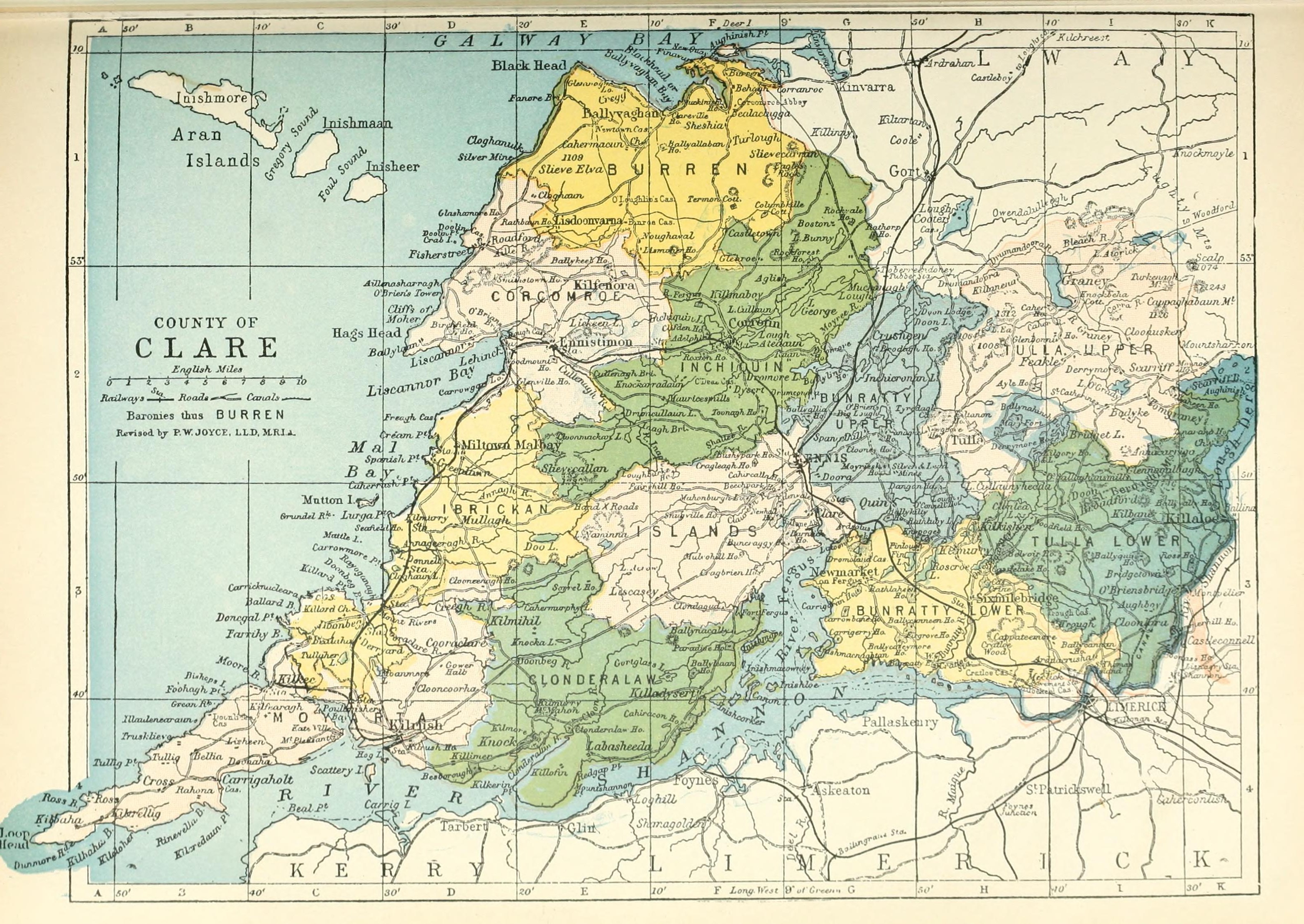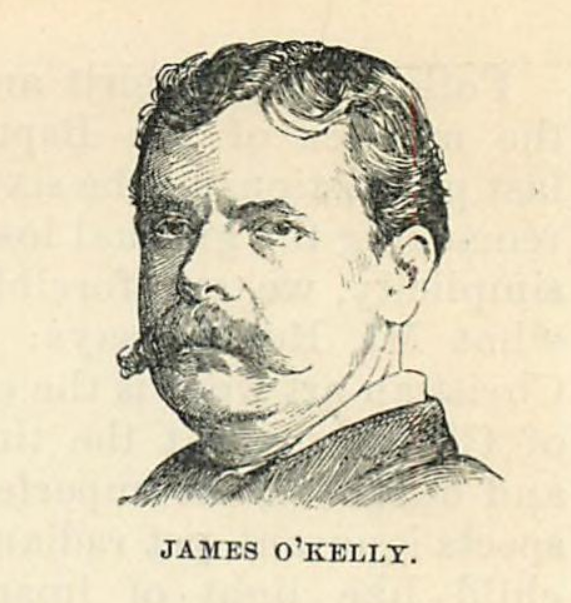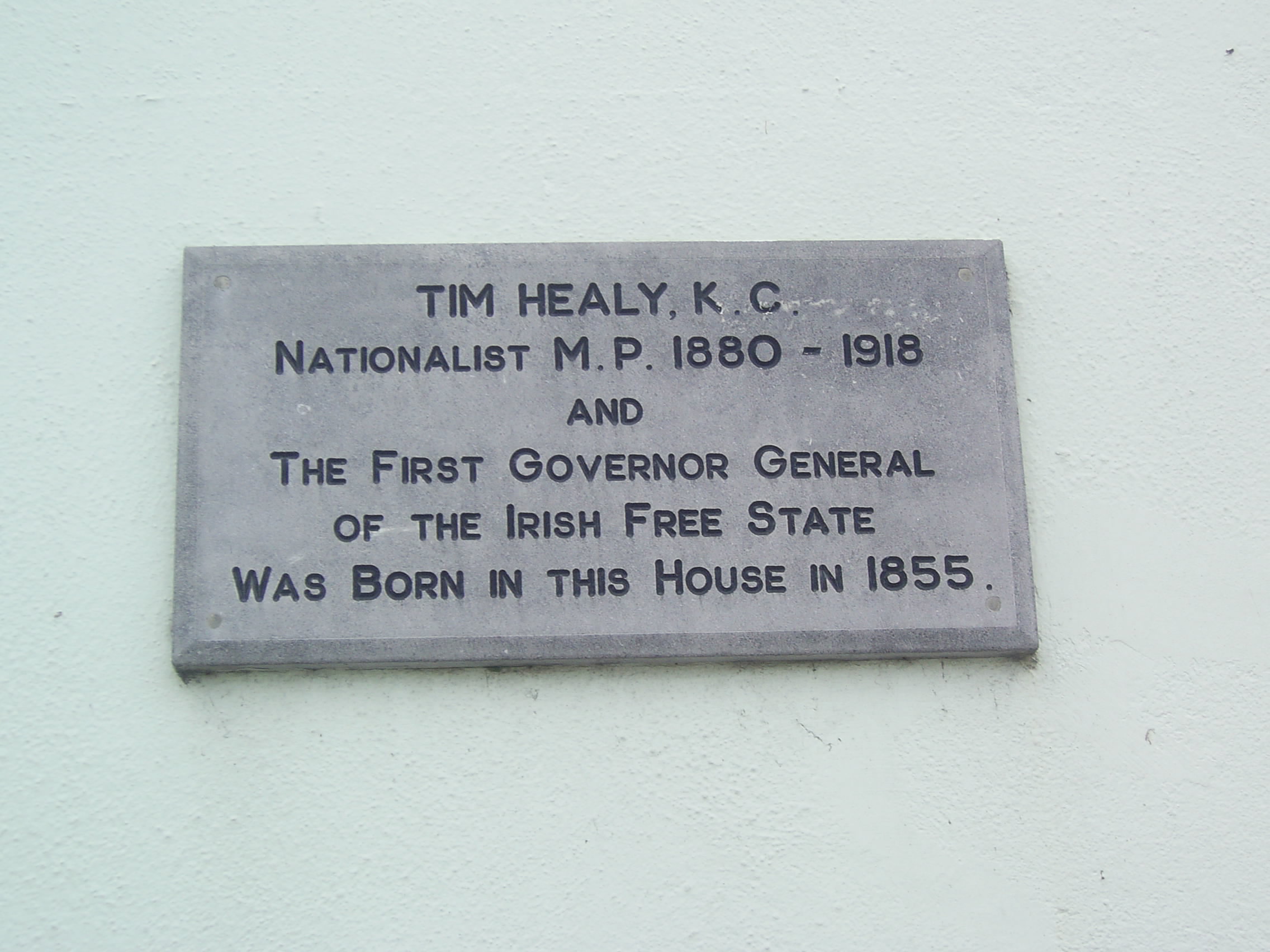|
Matthias McDonnell Bodkin
Matthias McDonnell Bodkin (8 October 1850 – 7 June 1933) was an Irish nationalist politician and MP. in the House of Commons of the United Kingdom of Great Britain and Ireland and Anti-Parnellite representative for North Roscommon, 1892–95, a noted author, journalist and newspaper editor, barrister (King's Counsel (K.C.)), and County Court Judge for County Clare, 1907–24. Early life Bodkin was the second son of a doctor, Thomas Bodkin, MD FRCSI, of Tuam, County Galway (a descendant of Tribes of Galway). His mother was Maria McDonnell of Westport, County Mayo, a cousin of Antony MacDonnell, 1st Baron MacDonnell (1844–1925). Bodkin was educated at the Christian Brothers' school, Tuam and at Tullabeg Jesuit College. He had wanted to go to the Anglican Trinity College Dublin but his family objected on religious grounds and he attended the Catholic University of Ireland, which had a strong Roman Catholic ethos, instead. He was scathing about this experience:"It is true I ... [...More Info...] [...Related Items...] OR: [Wikipedia] [Google] [Baidu] |
Barrister
A barrister is a type of lawyer in common law jurisdictions. Barristers mostly specialise in courtroom advocacy and litigation. Their tasks include taking cases in superior courts and tribunals, drafting legal pleadings, researching law and giving expert legal opinions. Barristers are distinguished from both solicitors and chartered legal executives, who have more direct access to clients, and may do transactional legal work. It is mainly barristers who are appointed as judges, and they are rarely hired by clients directly. In some legal systems, including those of Scotland, South Africa, Scandinavia, Pakistan, India, Bangladesh, and the British Crown dependencies of Jersey, Guernsey and the Isle of Man, the word ''barrister'' is also regarded as an honorific title. In a few jurisdictions, barristers are usually forbidden from "conducting" litigation, and can only act on the instructions of a solicitor, and increasingly - chartered legal executives, who perform tasks such ... [...More Info...] [...Related Items...] OR: [Wikipedia] [Google] [Baidu] |
Freeman's Journal
The ''Freeman's Journal'', which was published continuously in Dublin from 1763 to 1924, was in the nineteenth century Ireland's leading nationalist newspaper. Patriot journal It was founded in 1763 by Charles Lucas and was identified with radical 18th-century Protestant patriot politicians Henry Grattan and Henry Flood. This changed from 1784 when it passed to Francis Higgins (better known as the "Sham Squire") and took a more pro-British and pro-administration view. In fact Francis Higgins is mentioned in the Secret Service Money Book as having betrayed Lord Edward FitzGerald. Higgins was paid £1,000 for information on FitzGerald's capture. Voice of constitutional nationalism In the 19th century it became more nationalist in tone, particularly under the control and inspiration of Sir John Gray (1815–75). ''The Journal'', as it was widely known as, was the leading newspaper in Ireland throughout the 19th century. Contemporary sources record it being read to the largely ill ... [...More Info...] [...Related Items...] OR: [Wikipedia] [Google] [Baidu] |
Pen Name
A pen name, also called a ''nom de plume'' or a literary double, is a pseudonym (or, in some cases, a variant form of a real name) adopted by an author and printed on the title page or by-line of their works in place of their real name. A pen name may be used to make the author's name more distinctive, to disguise the author's gender, to distance the author from their other works, to protect the author from retribution for their writings, to merge multiple persons into a single identifiable author, or for any of a number of reasons related to the marketing or aesthetic presentation of the work. The author's real identity may be known only to the publisher or may become common knowledge. Etymology The French-language phrase is occasionally still seen as a synonym for the English term "pen name", which is a "back-translation" and originated in England rather than France. H. W. Fowler and F. G. Fowler, in ''The King's English'' state that the term ''nom de plume'' evolv ... [...More Info...] [...Related Items...] OR: [Wikipedia] [Google] [Baidu] |
County Clare
County Clare ( ga, Contae an Chláir) is a county in Ireland, in the Southern Region and the province of Munster, bordered on the west by the Atlantic Ocean. Clare County Council is the local authority. The county had a population of 118,817 at the 2016 census. The county town and largest settlement is Ennis. Geography and subdivisions Clare is north-west of the River Shannon covering a total area of . Clare is the seventh largest of Ireland's 32 traditional counties in area and the 19th largest in terms of population. It is bordered by two counties in Munster and one county in Connacht: County Limerick to the south, County Tipperary to the east and County Galway to the north. Clare's nickname is ''the Banner County''. Baronies, parishes and townlands The county is divided into the baronies of Bunratty Lower, Bunratty Upper, Burren, Clonderalaw, Corcomroe, Ibrickan, Inchiquin, Islands, Moyarta, Tulla Lower and Tulla Upper. These in turn are divided into civil parishes, ... [...More Info...] [...Related Items...] OR: [Wikipedia] [Google] [Baidu] |
Black And Tans
Black is a color which results from the absence or complete absorption of visible light. It is an achromatic color, without hue, like white and grey. It is often used symbolically or figuratively to represent darkness. Black and white have often been used to describe opposites such as good and evil, the Dark Ages versus Age of Enlightenment, and night versus day. Since the Middle Ages, black has been the symbolic color of solemnity and authority, and for this reason it is still commonly worn by judges and magistrates. Black was one of the first colors used by artists in Neolithic cave paintings. It was used in ancient Egypt and Greece as the color of the underworld. In the Roman Empire, it became the color of mourning, and over the centuries it was frequently associated with death, evil, witches, and magic. In the 14th century, it was worn by royalty, clergy, judges, and government officials in much of Europe. It became the color worn by English romantic poets, businessm ... [...More Info...] [...Related Items...] OR: [Wikipedia] [Google] [Baidu] |
Augustine Birrell
Augustine Birrell King's Counsel, KC (19 January 185020 November 1933) was a British Liberal Party (UK), Liberal Party politician, who was Chief Secretary for Ireland from 1907 to 1916. In this post, he was praised for enabling tenant farmers to own their property, and for extending university education for Catholics. But he was criticised for failing to take action against the rebels before the Easter Rising, and resigned. A barrister by training, he was also an author, noted for humorous essays. Early life Birrell was born in Wavertree, near Liverpool, the son of The Rev. Charles Mitchell Birrell (1811-1880), a Scottish Baptist minister and Harriet Jane Grey (1811-1863) daughter of Henry Grey (minister), Rev Henry Grey of Edinburgh. He was educated at Amersham Hall school and at Trinity Hall, Cambridge where he was made an Honorary Fellow in 1879. He joined the Sylvan Debating Club in 1872. He started work in a solicitor's office in Liverpool but was called to the Bar in 187 ... [...More Info...] [...Related Items...] OR: [Wikipedia] [Google] [Baidu] |
Chief Secretary For Ireland
The Chief Secretary for Ireland was a key political office in the British administration in Ireland. Nominally subordinate to the Lord Lieutenant, and officially the "Chief Secretary to the Lord Lieutenant", from the early 19th century until the end of British rule he was effectively the government minister with responsibility for governing Ireland, roughly equivalent to the role of a Secretary of State, such as the similar role of Secretary of State for Scotland. Usually it was the Chief Secretary, rather than the Lord Lieutenant, who sat in the British Cabinet. The Chief Secretary was ''ex officio'' President of the Local Government Board for Ireland from its creation in 1872. British rule over much of Ireland came to an end as the result of the Irish War of Independence, which culminated in the establishment of the Irish Free State. In consequence the office of Chief Secretary was abolished, as well as that of Lord Lieutenant. Executive responsibility within the Iris ... [...More Info...] [...Related Items...] OR: [Wikipedia] [Google] [Baidu] |
Thomas Sexton (Irish Politician)
Thomas Sexton (1848–1932) was an Irish journalist, financial expert, nationalist politician and Member of Parliament (MP) in the House of Commons of the United Kingdom of Great Britain and Ireland from 1880 to 1896, representing four different constituencies.Maume, Patrick (1999): ''The long Gestation, Irish Nationalist Life 1891–1918'', "Who's Who" p.243, Gill & Macmillan, He was High Sheriff of County Dublin in 1887 and Lord Mayor of Dublin 1888–1889. Sexton was a high ranking member of the Irish Parliamentary Party, raised up by Charles Stewart Parnell himself. However, Sexton broke with Parnell and joined the Anti-Parnellites in 1891 following Parnell's marriage scandal. Sexton was disheartened by the subsequent infighting amongst the Anti-Parnellites and pulled back from politics. He thereafter became the chairman of the Freeman's Journal, one of the largest newspaper in Ireland. Early life Sexton was born at Ballygannon, County Waterford, where he attended the local ... [...More Info...] [...Related Items...] OR: [Wikipedia] [Google] [Baidu] |
James Joseph O'Kelly
James Joseph O'Kelly (1845 – 22 December 1916) was an Irish nationalist journalist, politician and member of the House of Commons of the United Kingdom of Great Britain and Ireland and as member of the Irish Parliamentary Party represented the Roscommon constituency between 1880 and 1916. Background His grandparents on his father's side came from County Roscommon. His father, John O'Kelly, ran a blacksmith's shop and dray making business in Dublin's Peterson's Lane, which connects Townsend Street with City Quay. He also owned the Cumberland cottages off Westland Row. He was educated in Dublin. He was sent to London at a very early age to learn the craft of sculpting from his maternal uncle John Lawlor, however, on his father's insistence, he returned from London to take up an apprenticeship in the family business. After his father's death in 1861, the Dublin properties were sold and the family moved to London. James returned to John Lawlor's studio where he worked for two y ... [...More Info...] [...Related Items...] OR: [Wikipedia] [Google] [Baidu] |
Tim Healy (politician)
Timothy Michael Healy, KC (17 May 1855 – 26 March 1931) was an Irish nationalist politician, journalist, author, barrister and a controversial Irish Member of Parliament (MP) in the House of Commons of the United Kingdom of Great Britain and Ireland. His political career began in the 1880s under Charles Stewart Parnell's leadership of the Irish Parliamentary Party (IPP) and continued into the 1920s, when he was the first governor-general of the Irish Free State. Family background He was born in Bantry, County Cork, the second son of Maurice Healy, clerk of the Bantry Poor Law Union, and Eliza (née Sullivan) Healy. His elder brother, Thomas Healy (1854–1924), was a solicitor and Member of Parliament (MP) for North Wexford and his younger brother, Maurice Healy (1859–1923), with whom he held a lifelong close relationship, was a solicitor and MP for Cork City. His father was descended from a family line which in holding to their Catholic faith, lost their lands, whi ... [...More Info...] [...Related Items...] OR: [Wikipedia] [Google] [Baidu] |
William O'Brien
William O'Brien (2 October 1852 – 25 February 1928) was an Irish nationalist, journalist, agrarian agitator, social revolutionary, politician, party leader, newspaper publisher, author and Member of Parliament (MP) in the House of Commons of the United Kingdom of Great Britain and Ireland. He was particularly associated with the campaigns for land reform in Ireland during the late 19th and early 20th centuries as well as his conciliatory approach to attaining Irish Home Rule. Family, education William O'Brien was born at Bank Place in Mallow, County Cork, as second son of James O'Brien, a solicitor's clerk, and his wife Kate, the daughter of James Nagle, a local shopkeeper. On his mother's side he was descended from the distinguished Norman family of Nagles, long settled in the vicinity of Mallow giving their name to the nearby Nagle Mountains. He was also linked through his mother with the statesman Edmund Burke's mother's family, as well as with the poet Edmund Spenser's ... [...More Info...] [...Related Items...] OR: [Wikipedia] [Google] [Baidu] |
Irish National Federation
The Irish National Federation (INF) was a nationalist political party in Ireland. It was founded in 1891 by former members of the Irish National League (INL), after a split in the Irish Parliamentary Party (IPP) on the leadership of Charles Stewart Parnell. Parnell had refused to resign his leadership of the party after being named in divorce proceedings against Katharine O'Shea by the former MP William O'Shea. In the aftermath of the divorce, William Ewart Gladstone, leader of the Liberal Party, had declared that he would not work with Parnell, damaging the parliamentary alliance between the IPP and the Liberals. The group, which became known as the Anti-Parnellites, had a larger membership than the rump of the INL that stood by Parnell, was led first by Justin McCarthy, then by John Dillon. The INF was supported by the Catholic clergy, who strongly influenced the general elections of 1892 and 1895, and the by-elections of the period. ''The Irish Times'' reported on 23 Febr ... [...More Info...] [...Related Items...] OR: [Wikipedia] [Google] [Baidu] |






